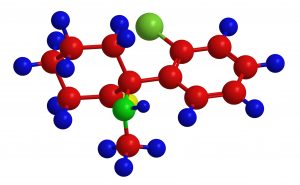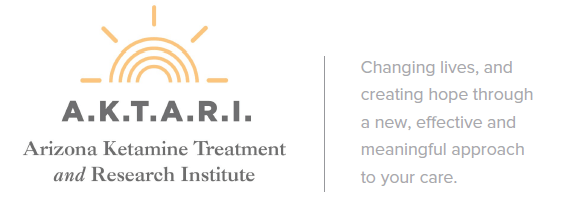National Institute of Health
For our patients who would like more in-depth knowledge into Ketamine and how it works on depression and other neuropsychiatric syndromes, the following information may be useful.
Researchers at the National Institutes of Health (NIH) and other high-level government and university laboratories are working on isolating and understanding the physiologic mechanism by which Ketamine works on depression and other similar disorders.
Dr. Carlos Zarate and his colleagues at NIH are at the forefront of this research, and have made a breakthrough discovery using animal studies. Zarate and his team succeeded in reverse-engineering Ketamine in their lab, and in the process discovered two chemical forms of the medication that mirrored one another. One form of Ketamine is known to block the NMDA glutamate receptor, located in the brain. This is the form of Ketamine most researchers have been focusing on, trying to duplicate its effect.
But Zarate’s team found that it was actually the mirror image form of Ketamine, called hydroxyl-norketamine (HNK), that was responsible for the antidepressant effects of the drug. Instead of blocking NMDA receptors, the HNK version of Ketamine activates another type of glutamate receptor called AMPA, commonly found in brain and neurological tissues.
During Ketamine infusion therapy, enzymes in the body convert about half of the drug to the HNK form, which seems to be why patients experience such a marked antidepressant effect.
Mechanism of Action
Ketamine is a glutamate N-methyl-D-aspartate (NMDA) receptor antagonist. In addition to NMDAR antagonism, ketamine potentiates glutamate transmission at alpha-amino-3-hydroxy-5-methyl-4-isoxazolepropionic acid (AMPA) receptors (AMPAR) and has additional inhibitory effects at muscarinic acetylcholine receptors. Ketamine induces rapid enhancement of synaptic structure and function in cortical regions concomitantly with antidepressant behavioral effects in rodents. Ketamine resulted in increased BDNF levels in hippocampus. There is compelling evidence for the involvement of synaptic plasticity and neurotrophic signaling in the mechanism of action of ketamine.

Low Dose Ketamine
Also worth noting is that the first form of Ketamine was associated with the high-dose side effects of hallucination, dissociation and spaciness, while the HNK form (low dose ketamine) did not create these types of side effects. This is encouraging in that an HNK-only form of Ketamine might be developed that offers depression relief yet eliminates the unpleasant side effects typically associated with high-dose Ketamine.
Todd Gould, researcher at the University of Maryland School of Medicine, stated that now that we know that Ketamine’s antidepressant effects on mice are due to HNK, the next steps will be to confirm if it works similarly in humans with the ultimate goal of improving depression treatment for patients.
NIH researchers are now in plans to determine if HNK is safe for humans and, if so, to start efficacy trials. AKTARI plans to participate as a clinical research center when trials are available. If you are interested in such trials, please let us know and we’ll be happy to keep you updated on this exciting and promising new research.
At AKTARI, we use low-dose slowly injected Ketamine that does not have side effects that are associated with commonly prescribed antidepressants. This is the preferred dosing method used to treat depression and other psychiatric syndromes.
During treatment for neuropsychiatric indications, some patients may experience mild confusion, lucid daydreaming, fuzzy vision, or nausea — these symptoms rapidly dissipate once the treatment is over. Just to be safe, patients are not to drive home after treatment.

Molecular structure of ketamine – medication used treating depression and other neuropsychiatric syndromes
“We’re getting closer and closer to having really, truly next-generation treatments that are better and quicker than existing ones.”
“Experts are calling Low Dose IV Infusion Ketamine the most significant advance in mental health treatment in the past 50-years. Since 2006, many studies have show that Ketamine can also reverse the kind of severe depression that traditional antidepressants often don’t touch.”
Dr. Carlos Zarate, National Institute of Mental Health
